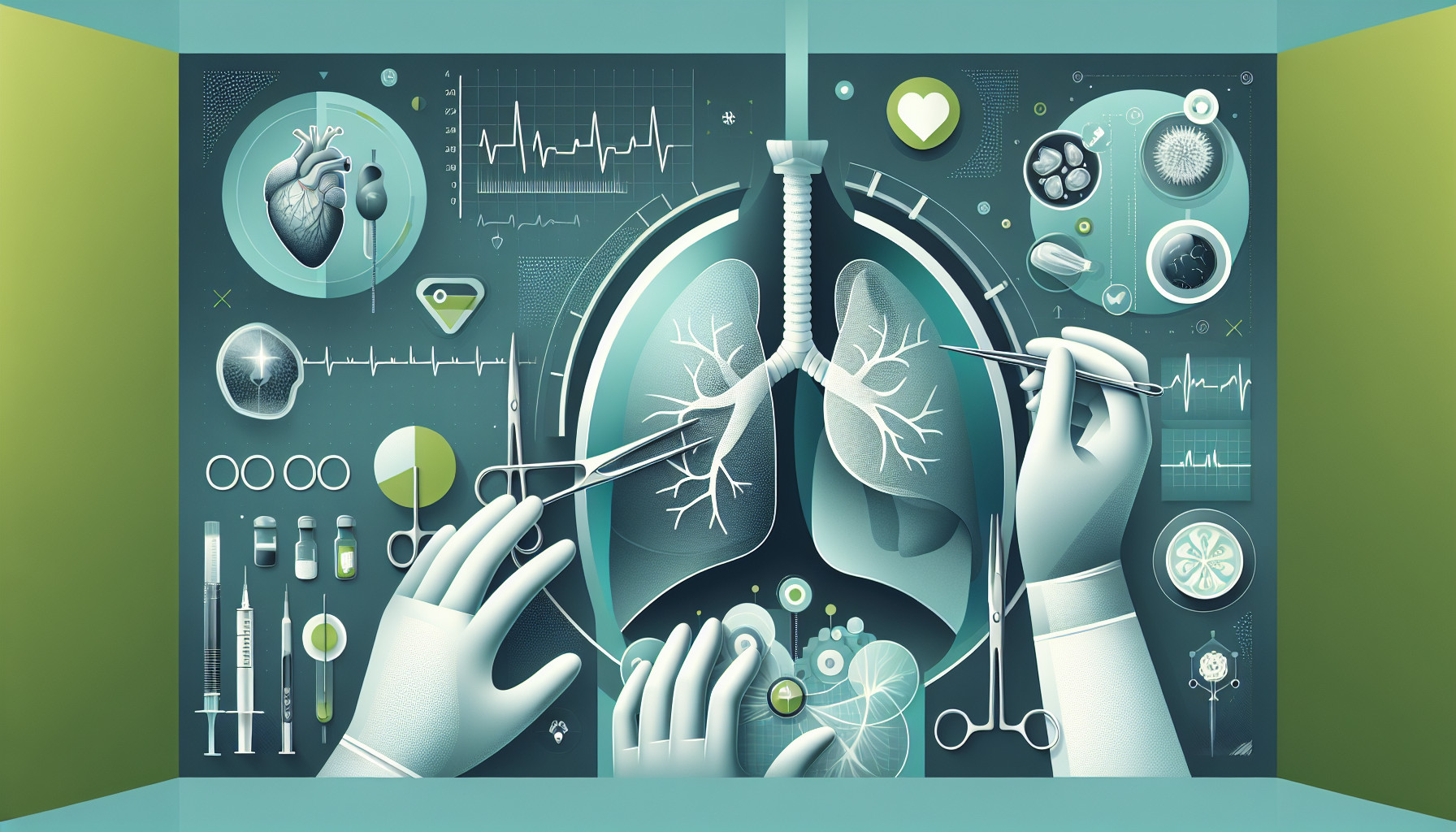Our Summary
This research paper discusses lung transplants, a common treatment for patients with severe lung diseases. Lung transplants are typically considered for patients who have less than a 50% chance of surviving the next two years without a transplant, but have over an 80% chance of living for five years or more with a transplant.
The paper also talks about how patients are cared for in intensive care after their surgery, and the possible complications that might arise, such as issues with the kidneys, abnormal heart rhythms, blood clots in the deep veins, problems with the new lung, high levels of ammonia in the blood, and low platelet count.
In addition, the paper also discusses how to manage long-term issues that may occur after a lung transplant, such as diabetes, high blood pressure, and narrowing of the bronchial tubes.
In simpler terms, this paper is all about who should get a lung transplant, what happens after the surgery, what problems might occur, and how to manage these problems.
FAQs
- Who are the ideal candidates for a lung transplant according to this article?
- What are some potential complications after a lung transplant?
- What long-term issues might need to be managed after a lung transplant?
Doctor’s Tip
One helpful tip a doctor might tell a patient about lung transplant is to closely follow the prescribed medication regimen, including immunosuppressant drugs, to prevent rejection of the new lung and maintain overall health. It is important to attend all follow-up appointments and communicate any changes in symptoms or concerns with your healthcare team. Additionally, adopting a healthy lifestyle, including regular exercise and a balanced diet, can help improve outcomes and overall quality of life after lung transplant.
Suitable For
Patients who are typically recommended for lung transplant are those with end-stage pulmonary disease who have a expected 2-year survival of less than 50% without a lung transplant and an expected 5-year survival of greater than 80% after transplant. These patients may have conditions such as cystic fibrosis, pulmonary fibrosis, chronic obstructive pulmonary disease (COPD), and pulmonary hypertension. Patients must undergo a thorough evaluation process to determine their candidacy for lung transplantation, including assessment of their overall health, lung function, and ability to comply with post-transplant care and medications.
Timeline
Before lung transplant:
- Patient undergoes extensive evaluation to determine eligibility for transplant, including physical exams, blood tests, imaging studies, and psychological evaluation.
- Patient is placed on the transplant waiting list and waits for a suitable donor match.
- Patient may experience worsening symptoms of their lung disease, such as shortness of breath, coughing, and fatigue.
- Patient may require supplemental oxygen or other treatments to manage symptoms while waiting for transplant.
After lung transplant:
- Patient undergoes surgery to receive the donor lungs.
- Patient is closely monitored in the intensive care unit immediately after surgery for complications such as infection, rejection, or organ failure.
- Patient begins a lifelong regimen of immunosuppressant medications to prevent rejection of the donor lungs.
- Patient undergoes regular follow-up appointments with their transplant team to monitor lung function, medication levels, and overall health.
- Patient may experience complications such as infection, organ rejection, or side effects from immunosuppressant medications.
- Patient may need to make lifestyle changes, such as quitting smoking and maintaining a healthy diet and exercise routine, to support the health of their new lungs.
What to Ask Your Doctor
- What are the risks and benefits of lung transplantation for my specific condition?
- What is the expected recovery time and process following a lung transplant?
- What is the success rate of lung transplants at your facility?
- What is the process for finding a donor match for a lung transplant?
- What are the potential complications or side effects of immunosuppressant medications after a lung transplant?
- How will my quality of life be affected after a lung transplant?
- How frequently will I need to follow up with my medical team after a lung transplant?
- What lifestyle changes will I need to make after a lung transplant?
- What resources are available for support before and after a lung transplant?
- Are there any alternative treatments or therapies that I should consider before pursuing a lung transplant?
Reference
Authors: Carney KC, Bronzell-Wynder T, Gronek K. Journal: Crit Care Nurs Clin North Am. 2019 Sep;31(3):285-302. doi: 10.1016/j.cnc.2019.05.001. Epub 2019 Jun 24. PMID: 31351551
